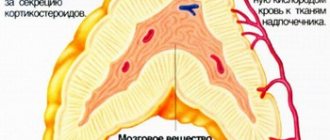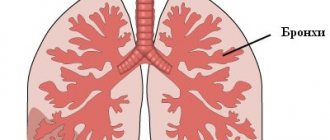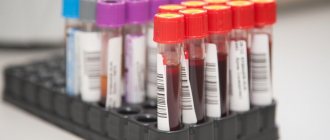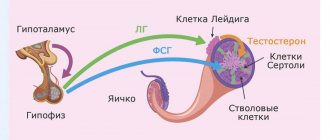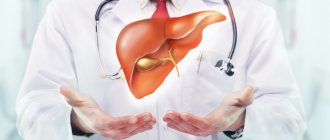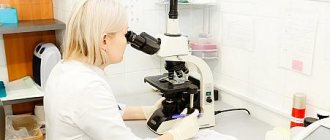Almost any health complaint (from irritability, insomnia, acne and hair loss to obesity, infertility and impotence) can indicate problems with the thyroid gland. Therefore, everyone needs to periodically examine this organ.
Our expert is an endocrinologist, member of the Russian Association of Endocrinologists, member of the European Association for the Study of Diabetes Elena Evdokimova.
It is no coincidence that this small organ, weighing only 25 g, located on the front of the neck and similar to a butterfly, is called the conductor of the body. It is he who controls almost all processes within our body.
No need to wait for symptoms
Unfortunately, thyroid diseases are not uncommon today. Among endocrine pathologies, their frequency of occurrence is second only to diabetes mellitus. And every year the number of patients with these pathologies is growing.
People of any age can suffer from problems with the thyroid gland: from newborns to the elderly. But the most vulnerable categories are adolescents during puberty, pregnant women and women who have recently given birth, as well as women on the eve of menopause. Hypothyroidism (lack of thyroid hormone production) is most common among them. In mature and elderly people, thyroid diseases are more often of an autoimmune nature.
To monitor the condition of this important organ and prevent dangerous complications, it is important to carry out timely diagnosis. This should be done regularly, once a year. Periodically examining the thyroid gland is also important because there are no specific symptoms for its diseases. Let's say, with Graves-Basedow disease, half of the patients have a feeling of sand in the eyes, bulging eyes, an unhealthy shine in the eyes and lacrimation, while the other half have none of this. And with other diseases of the thyroid gland, in half of the cases everything proceeds unnoticed. At least in the early stages, when treatment is most effective.
The cause of all illnesses. How to check your thyroid function? More details
When to Test Your Thyroid Hormones
Be sure to check your hormonal status if you experience the following symptoms:
- fatigue, weakness;
- problems with concentration;
- lack of interest in life;
- irritability, touchiness;
- hoarseness, difficulty swallowing;
- unpleasant or painful sensations in the neck;
- increase in neck volume;
- excess weight/sharp weight fluctuations;
- hot flashes, excessive sweating/chills, cold extremities;
- poor condition of skin, hair and nails;
- hand tremors;
- cardiopalmus;
- cycle disruptions in women;
- other noticeable changes in well-being.
Under someone else's mask
In addition, those manifestations that may well occur with thyroid pathology can accompany a host of other diseases. For example, the sensation of a lump in the throat, or “tight collar syndrome,” is believed to be a clear sign of a goiter. But in fact, this is not at all necessary, and such sensations may simply be associated with increased anxiety. Or, for example, rapid weight gain, increased fatigue, apathy and memory impairment, which are often associated with iodine deficiency, can be caused by chronic fatigue syndrome, depression or vitamin D deficiency. And symptoms associated with hyperthyroidism (weight loss, rapid heartbeat, increased humidity skin), can occur with a host of other pathologies (in particular, cancer). Therefore, you definitely shouldn’t diagnose yourself, much less prescribe iodine preparations or any other medicines and folk remedies for preventive purposes. But it still doesn’t hurt to get checked.
Blood preparation and collection
The biomaterial for a comprehensive study of thyroid hormones is venous blood. The collection procedure is most often carried out in the morning, on an empty stomach. If it is performed during the daytime, then the fasting period should be at least 3-4 hours. Drinking clean still water is allowed at any time. Two weeks before the test, you should discuss with your doctor the need to stop taking medications, as some of them distort the diagnostic results. For example, steroid and thyroid hormones should be discontinued no later than 48 hours, and preparations with iodine and thyroxine no less than 72 hours before blood collection. The day before, it is recommended to avoid physical activity and avoid emotional stress. During the last 3 hours you must refrain from smoking.
Blood is taken from a vein using a puncture method with minimal time for applying a tourniquet. The material is placed in a special tube and delivered to the laboratory in a sealed box. Before the test, the blood is centrifuged and clotting factors are removed. Antibodies are added to the resulting serum, which form complexes with the component being studied - thyroid hormone, protein. These complexes are labeled by the enzyme. Then a substrate is added to the mixture, which, when interacting with the enzyme, begins to emit quanta of non-thermal glow. Chemiluminescence is recorded using special equipment; based on the obtained indicators, the concentration of the test compound is calculated. Typically, test results are prepared within a few hours and given to the patient the next day after blood donation.
Go to the doctor - not empty-handed
It is better to come to an endocrinologist already armed with research. Among the mandatory ones are an ultrasound of the thyroid gland and blood tests for hormones.
Ultrasound will help identify pathologies such as diffuse and nodular goiter, thyroiditis (inflammation of the gland), benign or malignant neoplasms. However, it is a mistake to assume that if an ultrasound of the thyroid gland is normal, then further examination is pointless. Ultrasound shows only the anatomical structure of the organ, but does not say a word about its function. If the thyroid gland is dysfunctional, the gland itself may look normal in appearance, be of normal size and without nodes or signs of inflammation. Therefore, in order to have a complete picture, it is important to also do tests. Basic initial laboratory examination includes blood tests for hormones: TSH - thyroid-stimulating hormone, free T4 (thyroxine) and free T3 (triiodothyronine). It is very important to take them in combination, since a change in one indicator is not informative enough; it is important to take into account how the level of two other hormones changes.
Article on the topic
“Butterfly” doesn’t press? Unexpected signs of thyroid problems
Thyroid screening
- Initial consultation with an endocrinologist;
- Ultrasound of the thyroid gland;
- Blood tests - T3f, T4f, TSH, AT to TPO, AT to TG;
- Thyroid screening (advanced);
- Initial consultation with an endocrinologist;
- ECG;
- Blood tests - T3f, T4f, TSH, AT to TPO, AT to TG;
- Complete blood count + ESR with leukocyte formula;
- Glucose;
- Total cholesterol;
- Calcium.
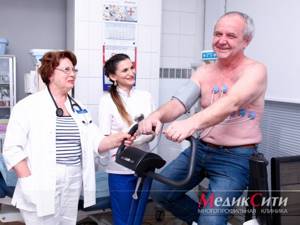
1
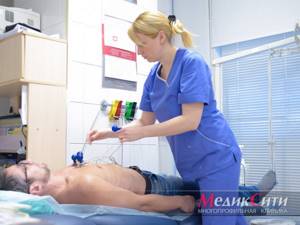
2

3
Assess risks
The second stage of the examination consists of tests for antibodies to microsomal thyroid peroxidase and thyroglobulin (anti-TPO and anti-TG). Levels of these antibodies above normal may indicate an autoimmune process (for example, this happens with autoimmune thyroiditis). It is important for people of any age to undergo such testing periodically to assess thyroid function, especially for those who have relatives with autoimmune diseases. In addition, this is necessary to monitor treatment for thyroid diseases. Antibodies to thyroid peroxidase can be detected in 5% of healthy people, especially often in elderly women. This fact may indicate an increased risk of developing thyroid disease in the future. Therefore, such patients need to have their thyroid gland examined more often than others.
Preparing for a hormonal study
A few days (weeks) before donating blood
If you are taking iodine-containing drugs or hormone replacement therapy, be sure to check with your endocrinologist to see if you should stop taking them. Otherwise, the test results may not reflect an objective picture of your condition.
On the eve of the analysis
Please note that blood for testing is taken strictly on an empty stomach. The test results can be influenced by a variety of factors, so numerous requirements for the patient (not to drink alcohol the day before, not to be overexerted physically and emotionally, not to eat, not to smoke, not to drink, not to take medications on the day of the test) have the most compelling reasons.
7 reasons to get tested at MedicCity:
- high professionalism of our medical staff;
- convenient location of the clinic;
- the opportunity to get tested at a convenient time and without queues;
- strict confidentiality;
- reliability and information content of the results;
- efficiency of research;
- wide range of ongoing research.
The clinic receives daily consultations from experienced endocrinologists who will help with any abnormalities in the functioning of the endocrine system. Our qualifications, knowledge, experience are at your service!
How to decipher the analysis
A reduced level of TSH (with high T3 and T4) most often occurs with hyperthyroidism, the cause of which in most cases is an autoimmune disease: diffuse toxic goiter (Graves-Bazedow disease). Such patients may be characterized by excessive nervous excitability, thinness with a good appetite, and rapid heartbeat.
High TSH and low T4 (and sometimes low T3) can indicate a lack of hormone production (hypothyroidism), which is often caused by an autoimmune disease such as thyroiditis. Such patients are often overweight, have dry skin, are slow, drowsy, get cold easily, get tired quickly and often complain about “lazy” intestines.
IMPORTANT! Try to avoid the temptation to interpret test results yourself, because only an endocrinologist can adequately interpret them.
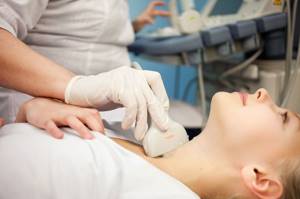
Anger attacks, low intelligence. How the thyroid gland affects the body Read more
Possible reasons for deviation from the norm
If the results of a thyroid hormone test deviate from the norm for children and adolescents, this may indicate problems with the thyroid gland itself, as well as with the regulation of its functioning.
Among the most common causes of increased T4 (hyperthyroidism) are:
- diffuse toxic goiter (DTZ);
- thyroid adenoma;
- excess body weight;
- chronic liver and kidney diseases, etc.
An analysis in which T4 is reduced relative to the child’s age norm may indicate the presence of one of the pathologies:
- autoimmune thyroiditis;
- endemic goiter;
- lack of iodine in food and water;
- taking narcotic drugs;
- inflammation of the hypothalamus, pituitary gland or surrounding tissues;
- intoxication of various origins;
- some types of pituitary tumors, etc.
An increase in T3 levels can occur with iodine deficiency, thyroid cancer, exposure to radiation, the development of Pendred's syndrome, thyroiditis and endemic goiter. The hormone often decreases in acute or subacute thyroiditis of various origins, as well as after operations and injuries.
The TSH level in children is also a marker of a number of pathological processes. An increased concentration may indicate the presence of one of the following diseases:
- hypothyroidism;
- Hashimoto's thyroiditis;
- tumor of the pituitary gland or lungs;
- adrenal insufficiency;
- lead poisoning;
- mental disorders, etc.
TSH in children and adolescents may be lower than normal due to the development of:
- diffuse toxic goiter;
- thyrotoxic adenoma;
- autoimmune thyroiditis;
- severe exhaustion (cachexia), etc.
It is important to remember that an isolated deviation from the norm of one or another hormone is not yet a sign of pathological processes. The result of the analysis can be influenced by lifestyle on the eve of blood donation, nutrition, taking a number of medications and other factors. Interpretation is carried out only by the attending physician, who takes into account not only laboratory diagnostic data, but also other data.
Blood test for total triiodothyronine (T3)
What it is. A venous blood test in which the concentration of total triiodothyronine (T3) is determined in a sample. As a rule, the test is prescribed along with TSH and T4 to clarify whether a person has hyperthyroidism.
Zilya Kalmykova says that T3 is a hormone very similar to T4 in its functions, but at the same time it is 3-4 times more active, so it is produced 10 times less. A test for total T3 is prescribed to assess the thyroid status in detail.
How it works. Like T4, T3 exists in the body in free and bound forms. But since there is little of it, in laboratory practice both forms are determined at once - this is called total triiodothyronine. And since there is less total T3 in the body, fluctuations in its level in some cases can provide more information than a test for free T4.
Why is it prescribed? To figure out whether a person has hyperthyroidism or not. There are situations when a patient has symptoms of hyperthyroidism - rapid heartbeat, weight loss, trembling and sweating, tests show low TSH levels, but free T4 is normal. To clarify what is happening to a person, the patient is prescribed a test for free T3.
How to understand the results. Abroad, the norm for total T3 is 1.1-2.6 nmol/l. In our country, the norm is wider - 1.23-3.0 nmol/l. By themselves, these indicators say almost nothing. You need to evaluate the result of the analysis based on the results of tests for TSH and free T4.
If a person has symptoms of hyperthyroidism, with a low TSH level and normal free T4, but:
- T3 is higher than normal - most likely, he still has hyperthyroidism
- T3 is normal - most likely there is no hyperthyroidism, and the symptoms are associated with other causes.
